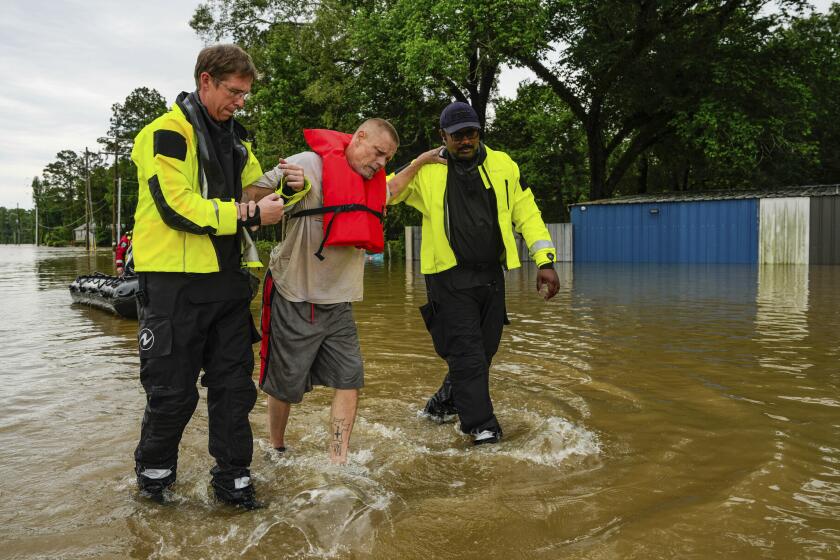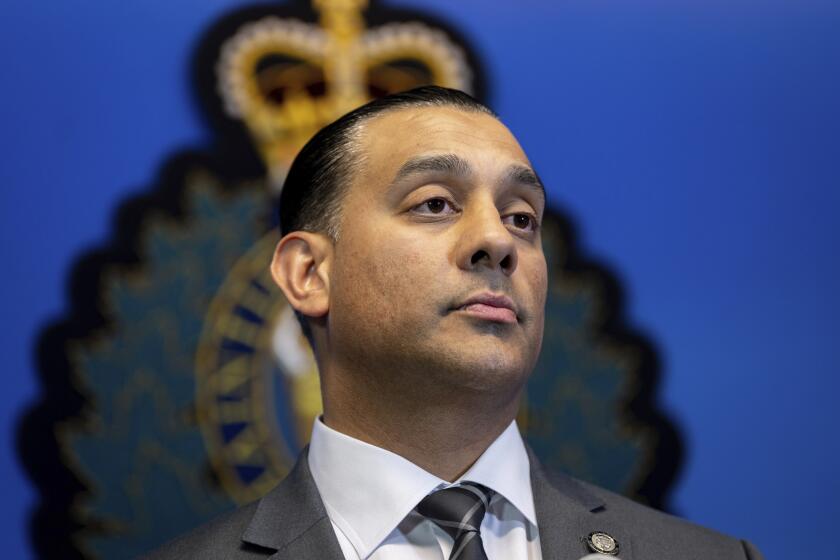U.S., Others Faltering in Promise to Children
Two years after the much-publicized World Summit for Children in New York, the United States and other nations are only slowly meeting their commitments to fund programs aimed at halting the deaths of 40,000 children every day from malnutrition and preventable illnesses.
President Bush and the leaders of 70 other countries signed a pact in September, 1990, that they said would set a “new ethic for children” by eradicating the worst aspects of hunger and poverty by the year 2000. The goals included cutting child mortality by at least a third, reducing maternal mortality and malnutrition by half and providing universal access to education, clean water, safe sanitation and family planning education and services.
The 71 leaders had declared that “we are prepared to make available the resources to meet these commitments.”
But many countries have failed to fulfill these pledges. In the United States, Congress responded by calling for increased spending aimed at helping children at home and in developing countries. The 1992 budget came close to meeting the commitment, but the 1993 allocation for overseas aid fell short by $116 million. One factor: pressure to boost domestic spending during an election year.
To achieve the summit’s goal, the United Nations Children’s Fund estimates that the world’s nations must come up with an additional $20 billion a year, a third of which would come from industrialized nations.
The U.S. share of the $7 billion from developed countries would be about $1.5 billion. Specialists in foreign aid say this could come from reallocating existing foreign aid money, more than half of which has been going toward military and security purposes.
Now, private international aid organizations are working to get President-elect Bill Clinton to fulfill the commitments to help the 1 billion people--most of them children--who live in poverty. They will ask Clinton to name to key foreign policy posts people who believe strongly in the summit’s goals.
They also would like Clinton to use U.S. influence to have James Grant, an American, appointed to an unprecedented fourth term as executive director of UNICEF when his term expires in 1994. Under Grant’s leadership, UNICEF played a vital role in immunizing 80% of the world’s children and built the momentum to convene the summit. Although UNICEF is a U.N. agency, U.S. pressure favoring Grant’s reappointment could make it happen.
If that fails, aid organization leaders say, Grant should be considered for the post of administrator of the Agency for International Development, a branch of the State Department that administers much foreign aid.
Another choice for AID administrator is Dr. William Foege, a past director of the Centers for Disease Control and Prevention. Foege was a key participant in the worldwide eradication of smallpox in the 1970s and 1980s. Other possibilities are Rep. Tony P. Hall (D-Ohio), chairman of the House Select Committee on Hunger, or outgoing Rep. Matthew F. McHugh (D-N.Y.), a member of the House Foreign Operations subcommittee on appropriations.
More to Read
Start your day right
Sign up for Essential California for news, features and recommendations from the L.A. Times and beyond in your inbox six days a week.
You may occasionally receive promotional content from the Los Angeles Times.






